Anuzar, 28, said from a hospital bed in the southern town of Pedang Besar this afternoon that he had been abducted from Cox's Bazaar in his homeland but had no money to pay a ransom.
''I want my mother and brother to know I am alive,'' he said. ''I was never able to contact them to ask them to pay my ransom.''
Thai authorities today raided the large camp, hidden in dense jungle in Songkhla province, and found Anuzar. He had been left for dead.
Nearby were two bodies, abandoned above-ground, and what appeared to be about 30 more bodies hidden in shallow graves.
Because the traffickers' recently-abandoned camp is in inaccessible jungle, only five bodies and the live survivor have so far been carried down, with eight men needed to carry each, a rescue organisation worker said.
''A forensics team is expects from Bangkok first thing on Saturday morning,'' said Sathit Kamsuwan, of the Maikom Sadao municipal rescue service.
The whole area has been cordoned off with about 200 soldiers, police and rescue workers likely to resume exhumations on Saturday, if intermittent rain permits.
The camp is said to be located just 300 metres from Thailand's border with Malaysia.
Anuzar, looking hungry and with wasted muscles, said from Pedang Besar Hospital that the dead had mostly been held in the camp for longer than his nine-month period of captivity.
''We were the people who could not pay the ransom so they kept us and did not really care whether we lived or died,'' he said.
A police guard has been placed near Anuzar's bedside. As a survivor, he may one day play a key role in testifying against the traffickers.
At times, up to 1000 people could be held in the camp, he said. Authorities in today's extensive raid involving 200 police, soldiers and paramedics found 39 shanty shacks with one roughly built tower that could have enabled a guard to overlook the camp's perimeter.
Police believe the traffickers abandoned the camp two days ago, possibly fleeing with able-bodied women and men who had more value than Anuzar.
''Eight brokers controlled the camp,'' Anuzar said. ''I knew three well - Ahmed Ali, Anwar and Sorim-Ida. Some are Rohingya, some are Malaysian.''
He said that he believed 10 Bangladeshis were among the dead scattered near the camp, along with at least 30 Rohingya.
''I know three Bangladeshis - Usaman, Belawa and Sahid - are among the dead,'' said Anuzar, who comes from Narsingdi, but says he was abducted while in Cox's Bazaar, on the coast.
More Bangladeshis have joined Rohingya in the boats because some are enticed to seek better jobs in Malaysia. Others say they are abduction victims who had no intention of leaving their homeland.
The human trafficking industry from Burma and Bangladesh has grown and is now so lucrative that purpose-adapted trawlers are carrying cargoes of hundreds of people, not fish.
''Most of us have been beaten or abused,'' Anuzar said. ''In the camp, we were never able to get enough food or water. Showering seldom happened.''
The camp was ''like a village,'' he said. He hopes to get in touch as soon as possible with his mother, Manucha.
The chief of the Takuapa district north of Phuket, Manit Pleantong, was shocked at photographs of the jungle camp and news that 30 or more graves may be nearby.
Khun Manit started a local rebellion against trafficking through the province of Phang Nga, setting up a 24-hour checkpoint on a main road.
''The government now seems to realise the scale of the trafficking problem and if enforcement follows, lives may be saved, along with Thailand's reputation,'' he said.
Chris Lewa of the Arakan Project, which tallies the numbers leaving Bangladesh and Burma and interviews survivors further south, says that more boatpeople are now being held on boats in international waters to beat the raiders now being encouraged in Thailand.
''Deaths are occurring at sea in substantial numbers, we have been told,'' she says.
Thailand, downgraded by the US State Department Trafficking in Persons report last year to Tier 3, the lowest level, is hoping to quickly escape that ignominy.

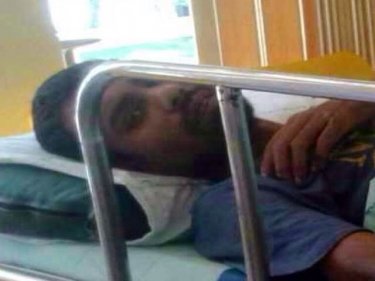





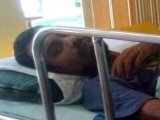
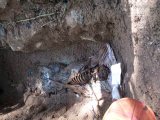
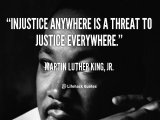
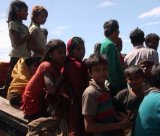
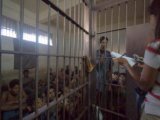


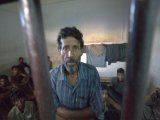
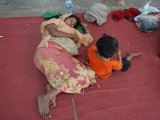

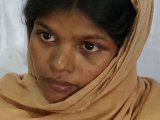
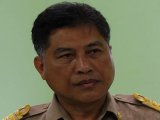

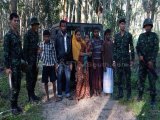




This person normally should be taken toa secure location and provided with a support and security for a long time as one of the most important wittnesses.
AT the same time, I don't really believe in those "kidnappings" from Bangaldesh - most likely it is economic migration that ent sorely wrong. Actually, it doesn't matter here for this case.
Posted by Sue on May 1, 2015 23:05